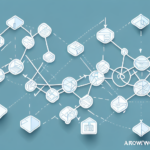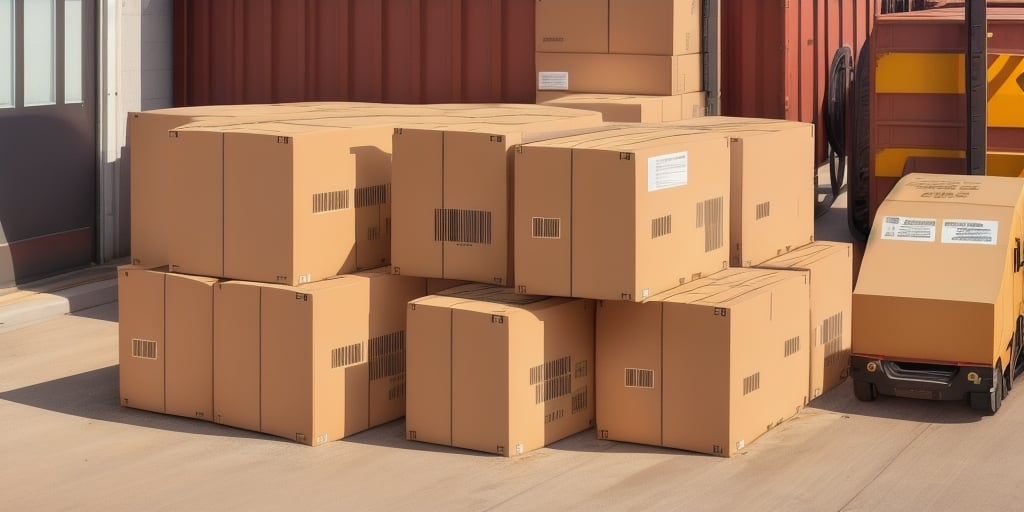Understanding UPS Applied Tariff and Customs Brokerage Fees
When it comes to shipping internationally, there are many costs that need to be considered. One of the most important costs is the UPS applied tariff and customs brokerage fees. These fees can make a significant impact on the overall cost of shipping and can sometimes be difficult to understand. In this article, we will cover everything you need to know about UPS applied tariff and customs brokerage fees, including their importance, what they are, how UPS applies them, factors that affect your shipping costs, and much more.
The Importance of Knowing Your Shipping Costs
Shipping costs are an essential part of your business. When you’re shipping goods internationally, the shipping costs can be even more significant. Understanding your shipping costs can help you make informed decisions when it comes to pricing your goods and choosing the right shipping carrier. Shipping costs can vary greatly depending on the destination country, type of goods being shipped, and the carrier used. For this reason, it is essential to understand the various costs associated with shipping, including the UPS applied tariff and customs brokerage fees.
Additionally, knowing your shipping costs can also help you identify areas where you can save money. For example, if you find that a particular carrier is consistently charging higher rates for the same type of shipment, you may want to consider switching to a different carrier. Similarly, if you frequently ship to a particular destination, you may be able to negotiate better rates with your carrier by committing to a certain volume of shipments. By understanding your shipping costs and exploring your options, you can make sure that you are getting the best possible value for your money.
What are Tariff and Customs Brokerage Fees?
Tariff fees are government taxes imposed on imported goods. They can be based on the value or quantity of goods being shipped, or a combination of both. Customs brokerage fees are the fees charged by a customs brokerage company to clear goods through customs in the destination country. These fees cover the cost of the paperwork and other administrative tasks required to import goods. Together, tariff and customs brokerage fees can add significant costs to your overall shipping expense.
It is important to note that tariff and customs brokerage fees can vary greatly depending on the country of origin and destination, as well as the type of goods being imported. Some countries may have higher tariff rates for certain products, while others may have lower rates or even exemptions for certain goods. Additionally, customs brokerage fees can vary depending on the complexity of the paperwork and the amount of time required to clear the goods through customs. It is important to research and understand these fees before importing goods to avoid unexpected costs.
How UPS Applies Tariff and Customs Brokerage Fees
UPS has a team of customs brokerage experts who are responsible for ensuring that all shipments comply with regulations and requirements of the importing authorities in the destination country. UPS’s automated customs clearance system helps to ensure that shipments are cleared quickly and efficiently, with up-to-date information that can help you plan your shipments and avoid any delays or unexpected costs. UPS applies tariff and customs brokerage fees based on the destination country’s regulations, the value and nature of the goods being shipped, and any other applicable restrictions or requirements.
Additionally, UPS offers a range of customs brokerage services to help businesses navigate the complex world of international trade. These services include classification and valuation of goods, compliance consulting, and assistance with documentation and licensing requirements. UPS’s customs brokerage experts can also provide guidance on trade agreements and regulations, such as the North American Free Trade Agreement (NAFTA) and the Trans-Pacific Partnership (TPP).
Furthermore, UPS’s customs brokerage services are backed by a global network of resources, including local expertise in more than 220 countries and territories. This allows UPS to provide tailored solutions to meet the unique needs of each customer, whether they are shipping a small package or managing a complex supply chain. With UPS’s customs brokerage services, businesses can streamline their international operations and focus on growing their business.
Factors That Affect Your Shipping Costs
There are several factors that can affect your UPS shipping costs, including the weight and size of your package, the origin and destination of your shipment, the type of service used (standard, expedited, etc.), and the value of the goods being shipped. Knowing these factors and how they impact your shipping costs can help you choose the right shipping option and avoid any unexpected costs.
Another factor that can affect your shipping costs is the distance between the origin and destination. The farther the distance, the higher the shipping cost is likely to be. Additionally, the time of year can also impact shipping costs, with peak seasons such as the holiday season often resulting in higher prices due to increased demand.
It’s also important to note that certain items may require special handling or packaging, which can increase shipping costs. For example, hazardous materials or fragile items may require additional packaging materials or special handling fees. It’s important to properly label and package your items to avoid any additional fees or delays in shipping.
Understanding the Harmonized Tariff System
The Harmonized Tariff System (HTS) is an internationally recognized standard for classifying goods. It is used by customs officials around the world to determine the appropriate tariff rate for imported goods. Knowing the correct HTS code for your products can help you avoid any delays or penalties and ensure that you are paying the correct tariff rate. UPS offers tools to help you find the correct HTS code for your products, so you can be confident that you are complying with regulations and paying the correct fees.
The HTS is a hierarchical system that uses a series of numbers and descriptions to classify goods. The first six digits of the code are standardized across all countries that use the system, while the remaining digits may vary depending on the country. This system allows for easy identification and tracking of goods as they move across borders.
It is important to note that the HTS is not the same as the Schedule B code used for exporting goods from the United States. While the two systems are similar, they have some key differences, and it is important to use the correct code for each transaction. UPS can help you navigate these complexities and ensure that you are using the correct codes for your shipments.
Common Tariff and Customs Brokerage Fee Scenarios
There are many scenarios that can result in additional UPS applied tariff and customs brokerage fees. For example, if your package is held for inspection or is subject to additional customs duties, fees may be added. Similarly, if your package is returned to the country of origin due to incorrect customs documentation, additional fees may be charged. It is always important to be aware of the regulations and requirements of the destination country to avoid any unexpected fees.
Another common scenario that can result in additional fees is if your package contains restricted or prohibited items. Each country has its own list of restricted and prohibited items, and it is important to check these lists before shipping your package. If your package is found to contain any restricted or prohibited items, it may be held by customs and additional fees may be charged for the inspection and handling of the package.
In addition, if you are shipping to a country with a high value-added tax (VAT) or goods and services tax (GST), you may be required to pay these taxes upon delivery. These taxes are based on the value of the goods being shipped and can add a significant amount to the total cost of shipping. It is important to research the tax laws of the destination country before shipping to avoid any unexpected fees.
Tips for Reducing Your Shipping Costs with UPS
There are several ways to reduce your UPS shipping costs, including optimizing your packaging to reduce weight and size, using UPS’s consolidated shipping services to combine multiple shipments, and using UPS’s online tools to manage your shipments more efficiently. Additionally, working with a trusted shipping partner like UPS can provide you with access to expert advice and support to help you navigate the complexities of international shipping.
How to Calculate Your UPS Shipping Costs
UPS offers several tools to help you calculate your shipping costs, including online calculators that take into account the weight, size, origin, and destination of your shipment. Additionally, UPS provides detailed invoices that break down all the costs associated with your shipment, including tariff and customs brokerage fees, so you can see exactly how much you are paying and for what services.
The Role of a Customs Broker in the Shipping Process
A customs broker is an expert in handling the paperwork and other administrative tasks required to import goods into a foreign country. They work closely with customs officials to ensure that all regulations and requirements are met, and they can provide valuable guidance and advice on how to navigate the complexities of the importing process. Working with a customs broker can help you avoid any unexpected costs or delays and ensure that your shipments arrive on time and in good condition.
Avoiding Common Mistakes When Shipping Internationally with UPS
There are many mistakes that can be made when shipping internationally with UPS, including incorrect documentation, improper packaging, and failure to comply with regulations and requirements in the destination country. To avoid these mistakes, it is essential to work closely with a trusted shipping partner like UPS and to follow all regulations and guidelines.
The Benefits of Working with a Trusted Shipping Partner like UPS
Working with a trusted shipping partner like UPS can provide many benefits, including access to expert advice and support, fast and efficient customs clearance, and the ability to track your shipments in real-time. Additionally, UPS’s online tools and resources can help you manage your shipments more efficiently and reduce costs.
How to Navigate the Complex World of International Shipping
International shipping can be a complex and challenging process. There are many regulations, requirements, and fees that need to be considered, and it can be challenging to navigate the various rules and guidelines. Working with a trusted shipping partner like UPS can help you navigate this complexity and ensure that your shipments arrive on time and in good condition.
Staying Up-to-Date on Changing Tariffs and Regulations
Tariffs and regulations can change quickly and unexpectedly, especially in times of economic and political uncertainty. To stay up-to-date on changing tariffs and regulations, it is essential to work with a trusted shipping partner like UPS, who can provide expert advice and support, and to keep informed of any updates or changes that may affect your shipping costs.
The Impact of Tariffs and Customs Brokerage Fees on Your Bottom Line
Tariffs and customs brokerage fees can make a significant impact on your bottom line, especially if you’re shipping goods internationally. Understanding these costs and how they are calculated can help you make informed decisions when it comes to pricing your goods and choosing the right shipping carrier. Working with a trusted shipping partner like UPS can help you minimize these costs and ensure that your shipments arrive on time and in good condition, so you can focus on growing your business.






















